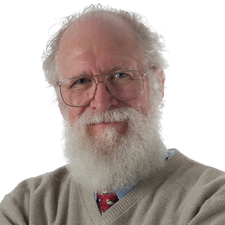Old Friends and Future Programmers
Doghouse – Future of FOSS

To build the future of FOSS, we need to focus on communicating its value – especially to young people.
Recently three things happened: the celebration of my 70th birthday, a Facebook discussion about songs of the mid-1960s, and the response to a birthday wish.
Being 70 years old has various consequences. I do not run up the stairs as quickly as I did when I was 18. I typically go to sleep earlier and get up later. I take a lot of pills to keep alive – not the fun stuff we may have done when we were younger. I start to look around my home and realize that I have to get rid of some of the things that remind me of my younger days, which brings me to the second topic.
Many of the songs of the mid-to-late 1960s were songs of protest, but also songs of hope and love. We protested what we considered needless wars and sang about making the world better – songs by Dylan; Guthrie; Paul Simon; Peter, Paul and Mary (amazing that after all this time searching for "PP&M" comes up with their names); and other artists. Their songs are still there, and more have followed, but I do not hear people singing them as much.
[...]
Buy Linux Magazine
Subscribe to our Linux Newsletters
Find Linux and Open Source Jobs
Subscribe to our ADMIN Newsletters
Support Our Work
Linux Magazine content is made possible with support from readers like you. Please consider contributing when you’ve found an article to be beneficial.

News
-
Introducing matrixOS, an Immutable Gentoo-Based Linux Distro
It was only a matter of time before a developer decided one of the most challenging Linux distributions needed to be immutable.
-
Chaos Comes to KDE in KaOS
KaOS devs are making a major change to the distribution, and it all comes down to one system.
-
New Linux Botnet Discovered
The SSHStalker botnet uses IRC C2 to control systems via legacy Linux kernel exploits.
-
The Next Linux Kernel Turns 7.0
Linus Torvalds has announced that after Linux kernel 6.19, we'll finally reach the 7.0 iteration stage.
-
Linux From Scratch Drops SysVinit Support
LFS will no longer support SysVinit.
-
LibreOffice 26.2 Now Available
With new features, improvements, and bug fixes, LibreOffice 26.2 delivers a modern, polished office suite without compromise.
-
Linux Kernel Project Releases Project Continuity Document
What happens to Linux when there's no Linus? It's a question many of us have asked over the years, and it seems it's also on the minds of the Linux kernel project.
-
Mecha Systems Introduces Linux Handheld
Mecha Systems has revealed its Mecha Comet, a new handheld computer powered by – you guessed it – Linux.
-
MX Linux 25.1 Features Dual Init System ISO
The latest release of MX Linux caters to lovers of two different init systems and even offers instructions on how to transition.
-
Photoshop on Linux?
A developer has patched Wine so that it'll run specific versions of Photoshop that depend on Adobe Creative Cloud.
